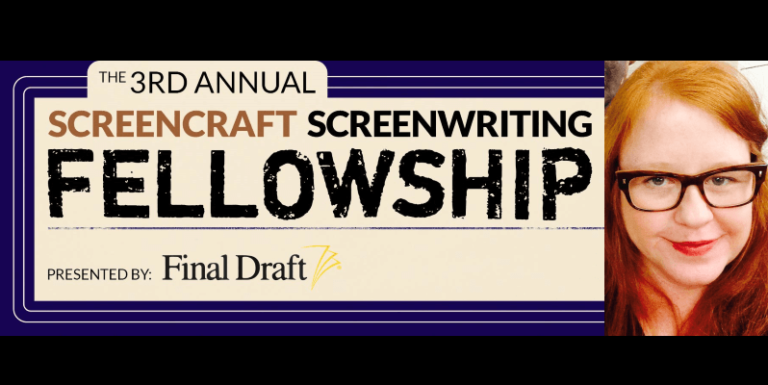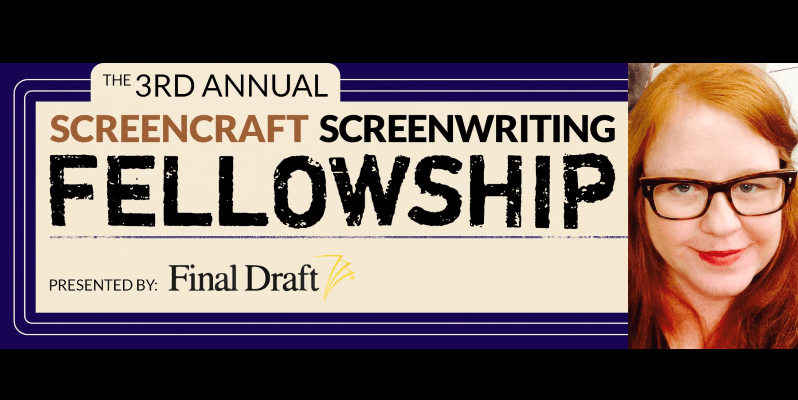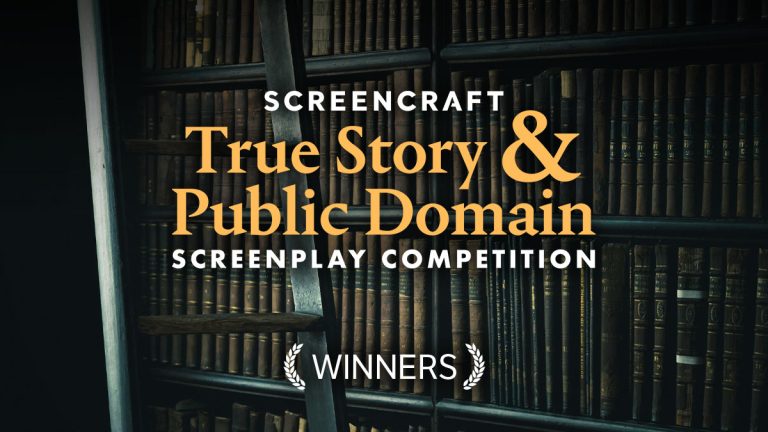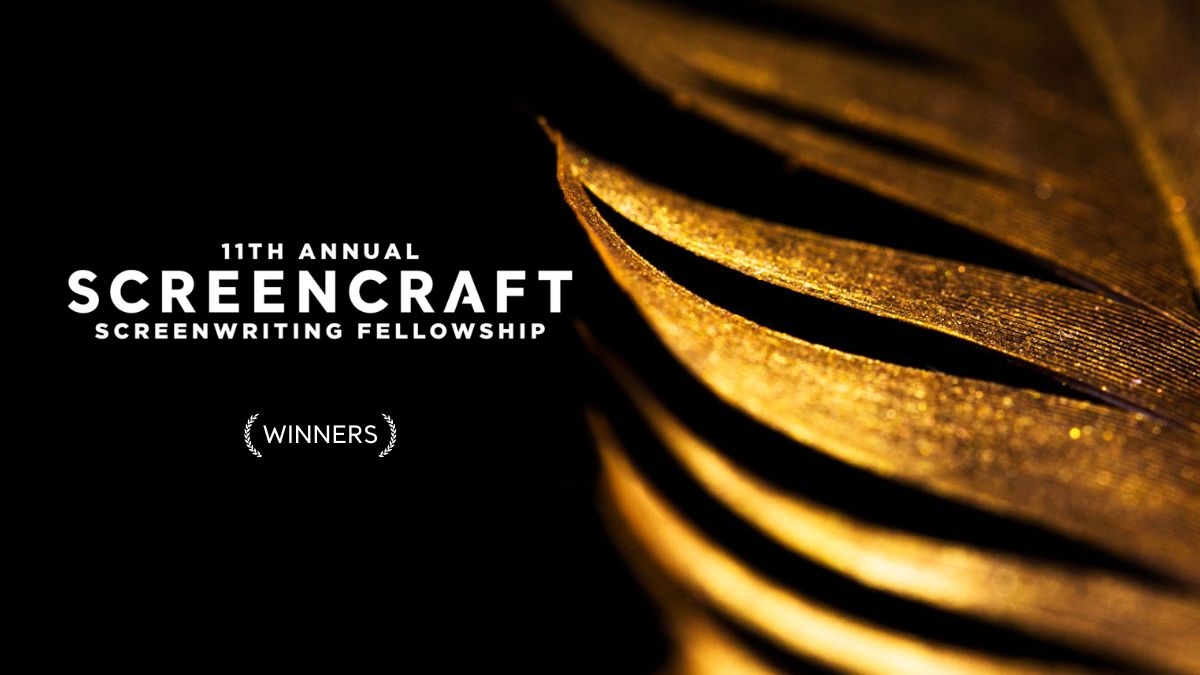One-On-One with 3rd Annual ScreenCraft Screenwriting Fellowship Recipient Nancy Duff

Nancy Duff has been announced as a recipient of the 3rd Annual ScreenCraft Screenwriting Fellowship for her script Dead Drop, which centers on 14-year-old Alexandra Sawyer as she finds herself placed in Gilbert Hall after her father suddenly goes missing. To outsiders, Gilbert Hall is a group home. To the GH5 Special Forces unit of the CIA, it’s a highly guarded safe house for orphaned offspring of the CIA’s elite. The story tracks Alexandra as she must come to terms with the startling truth about her parents while being trained with her peers as a junior agent.
Nancy is a Los Angeles-based screenwriter. In 2015 she placed in the semifinals in ScreenCraft’s Comedy Screenplay Contest and Sci-Fi Screenplay Contest and was a finalist in the TV Pilot Launch Contest. She has also made the top 10% of the Nicholl Fellowship and placed in Final Draft's Big Break competition.
ScreenCraft: Where and when did your storytelling roots begin?
Nancy Duff: My parents brought my brother and me to plays and musicals when we were young. They were very enthusiastic about the arts. Later on, in my teens, I became involved in community theater, as I was too shy to participate in the drama club at my own high school. Weirdly, I had no inhibitions of getting on stage in front of total strangers across town. This all led to writing short stories. I didn’t attempt to write my first screenplay until I moved to Los Angeles.
ScreenCraft: Where did the concept of your Fellowship-winning script Dead Drop come from?
Nancy Duff: I love spy stories and characters: The Bourne series, Joseph Turner in Three Days of the Condor, Sydney Bristow in Alias, James Bond, and The Americans to fun stuff like Burn After Reading and Kingsman. The wide-range of storylines within this genre allow me to reach creatively and take risks.
Making my lead character a teenager, it was important to me for my story to be grounded in tone as I think sometimes teen spy stories tend to go campy. I wanted to go the opposite direction. I purposely took away her technology and made her fend for herself. A couple of years ago I cleaned out my parent’s storage unit and found my old Speak n’ Spell and 2XL Robot. At the time I never thought it would inspire me to use them as clues or weapons in a spy script in 2016. They now sit on a shelf in my kitchen where I often write.
Ultimately Dead Drop is about loss, the loss of innocence and the loss of a parent. Alexandra’s day-to-day life will never be the same again. In a way, I was writing about losing my own parents — without the story being centered around that per se. Losing a parent changes you and an internal fight-or-flight kicks in, even in adulthood. One asks the question, where do I belong? For the story, I created Gilbert Hall; the safe house for CIA offspring, to the outside world, a group home. Something about being labeled on the outside as a misfit but secretly part of an elaborate plan, a puzzle piece that fits perfectly, appealed to me. Having Alexandra’s journey mirror her literary hero added another layer. I wanted her to be a throwback to another era but still excel in the modern world.
ScreenCraft: What are some of the hardest lessons you’ve learned in your pursuit of a screenwriting career?
Nancy Duff: I’ve learned to keep writing and not give up. Not sure who said it, but it’s often repeated by people I admire, “no one gets better by writing less.”
Forming a writers group with people I trusted enabled me to lose a bit of the fear of failure and take chances. I made the mistake of writing in a vacuum for the first couple of years. Presently, I participate in two groups, one more intimate with about six writers and on the weekends I participate in the Coronet Writers Lab with both writers and actors. Each week in the weekend lab, two writers present thirty pages for a cold read. It can be amazing and it can be a disaster. But if it is a disaster, I work hard for the next month and rewrite like hell. By the time I’m up next, I can’t wait to see the improvements.
Also learning how to handle rejection because there is a lot of it. Again, belonging to a writers group and sharing stories helps with this immensely.
ScreenCraft: You have a unique background in visual effects, specifically as a VFX coordinator for Universal Pictures. How has that experience informed your screenwriting?
Nancy Duff: Working in VFX has taught me that if I can imagine it, VFX artists can bring it to fruition. I love writing action, sci-fi and thriller genres. Maybe it is the years spent in visual effects, but I’m a girl who likes creatures, monsters and to blow stuff up (virtually of course). Eventually, I want to work across all genres. By day I look at excel spreadsheets, at night, Final Draft. At the end of the day I concentrate on my characters and their motivation. While I don’t think about VFX elements and budget costs while I write, I am guilty of going back and doing a VFX Breakdown on my sci-fi script.
Backing up just a bit, before working at Universal, I worked at the VFX vendor Rhythm & Hues. It was while working at R&H, that my writers group was formed with people who worked in all areas of VFX: animation, technology and production management. Now years later a few of us still meet on a regular basis. One thing I found working in VFX is everyone is not just a film/TV fan — but an uber fan. I think being surrounded by that enthusiasm and creativity spilled over into my writing. Before this writing group I had always written with partners. It was in this group, that I lost my training wheels and made the jump to write by myself.
Now working at Universal, I continue to educate myself as a writer by reading lots of scripts, noting how the drafts change the closer we get to production. I’m lucky that I can watch the development process from the script, concept artwork, and previs to the final product. It’s an on-the-job education.
ScreenCraft: Has working in the studio system in that non-screenwriting capacity opened any doors for you and your screenwriting?
Nancy Duff: It depends on what your definition is of "opened any doors." My jobs have not led to any sort of paid writing opportunity or representation, however I’ve had the good fortune to be exposed to the different stages of development, which I feel will be vital to my success as a working screenwriter. I love this environment and working with like-minded people as there is a specific energy about working on a studio lot that can’t be replicated.
At Disney, I worked for a prolific producer and got to travel on film locations and work closely with the development executive. The experience and opportunity was phenomenal. But again, it’s about observing and learning. I try to be a sponge and soak up what I can, so I hopefully can apply what I learn to my own projects in the future.
ScreenCraft: Your writing has placed high in other esteemed competitions. What do you attribute to such success as far as your writing process goes?
Nancy Duff: I put myself on a schedule when deadlines approach. Conversely, I also set aside time for life and myself, time not to write. Working a full-time job and participating in two writing groups, my time is limited. If all I did was hang out at my desk by myself, I’d be miserable.
Getting notes from people I trust and who know my writing style and voice is very helpful. By participating in my weekend writers group, I know that once a month I have to present pages. It’s similar to producing your own mini table read each month. It pushes me in a different way than if I were prepping to read it myself. Having a table read and audience makes me hustle.
Also I think it’s important to break out of my box every now then. I took a sketch writing class at UCB and loved it. I’m trying to work up the courage to take an improv class as well. The different style and group atmosphere was freeing and creative. I also find attending writing panels and listening to podcasts with people whose work I admire incredibly helpful, insightful and motivating.
ScreenCraft: How do you plan to utilize the ScreenCraft Fellowship and what goals are you setting for such an experience?
Nancy Duff: First, I’m looking forward to working with the ScreenCraft team. Their genre specific contests, multiple deadlines, and feedback have been a constant motivator for me the past couple of years. I’m excited to work with them in person. Next, at the Fellowship, I hope to further improve my craft and receive guidance from the mentors. I admire their work and to get their insight and advice will be invaluable. Finally, and ultimately, I am hoping that participating in the fellowship will help me knock on some doors I otherwise can’t get to myself. My goal is to advance my writing career and ideally secure representation. No matter what happens, I’ll keep writing.
ScreenCraft: What is your best Hollywood anecdote or story and what can people learn from it?
Nancy Duff: The best advice I’ve heard and try and follow: If you’re not 110% sure you are the most prepared in the room, be quiet and listen.
Tags
Get Our Screenwriting Newsletter!
Get weekly writing inspiration delivered to your inbox - including industry news, popular articles, and more!



























